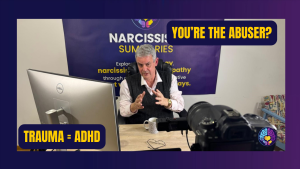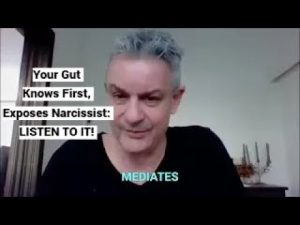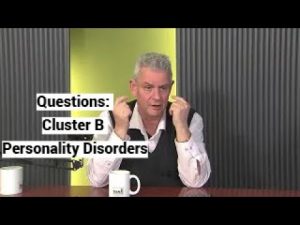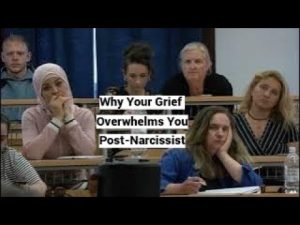- 1.1 Keys to a Successful Long-term Relationship
- 1.2 Critique of the “Dark Empath” Concept
- 1.3 Concept of Overexcitability and Highly Sensitive People
- 1.4 Psychological Dynamics in Relationships with Narcissists
- 1.5 Philosophy and Intuition
- 1.6 Interaction Between Individual and Society Through Intuition
- 1.7 Prophets, Scientists, and the Role of Intuition
- 1.8 Three Types of Intuition
- 1.9 Philosophical Views on Intuition
- 1.10 Intuition in the Context of Narcissism and Psychopathy
- 1.11 Practical Advice on Using Intuition in Relationships
- 1.12 Additional Philosophical and Spiritual Perspectives
- 1.13 Final Reflections
Narcissist? Trust Your Gut Feeling: 4 Rules to Avoid Bad Relationships (Intuition Explained)
Keys to a Successful Long-term Relationship
- Four essential keys to identifying and maintaining a relationship with an empathic and warm partner were shared: 1) If it feels wrong, it is wrong; 2) Too much conspicuous effort indicates fakeness; 3) If it’s too good to be true, it’s not true; 4) Believe nothing and verify everything due to high frequency of deception in communication [00:00-04:30].
Critique of the “Dark Empath” Concept
- The notion of the “dark empath” as a narcissist or psychopath with empathy was debunked based on clinical and diagnostic knowledge; empathy in narcissists and psychopaths is recognized as cognitive or reflexive empathy, established for over 15 years [04:31-09:00].
- The term “empath” is described as a self-imposed, non-clinical label often misused for personal or commercial gain, lacking validity in psychology [08:00-09:00].
Concept of Overexcitability and Highly Sensitive People
- Overexcitability relates to heightened physiological response that contributes to personal growth and is linked to intuition and highly sensitive people (HSP); this connects to experiences in relationships, such as feeling something “off” around narcissists even when circumstances seem positive [09:30-12:00].
Psychological Dynamics in Relationships with Narcissists
- Discussion of microexpressions, confirmation bias, idealization cycles, and the difficulty of recognizing harmful traits in narcissists early on due to repression and idealization [12:01-14:30].
- Introduction of “co-idealization,” where both partners idealize each other initially [13:00].
Philosophy and Intuition
- Philosophy’s importance in understanding intuition and human behavior was emphasized, referencing ancient Greek and contemporary philosophers as essential to mastering intuition [15:00-17:00].
- Reference to Polish philosopher Kazimierz Dąbrowski’s Theory of Positive Disintegration, describing personal growth through disintegration and reintegration, fueled by overexcitability and moderated by socialization and defiance [17:30-21:00].
Interaction Between Individual and Society Through Intuition
- Intuition described as the channel through which individuals detect social signals, especially in interpersonal relationships [20:00-22:00].
- Differentiation between narcissists/psychopaths and healthy individuals in emotional reactions to social cues [21:30].
Prophets, Scientists, and the Role of Intuition
- Both prophets and scientists rely on frameworks for predicting the future, rejecting intuition openly, but intuition underpins their insights and discoveries [22:00-24:30].
- Intuition as a profound, non-verbal, and sometimes ineffable source of knowledge that loses its essence once articulated in language [23:30].
Three Types of Intuition
- Identic Intuition: Direct access to abstract or essential objects without intellectual mediation; linked to the works of Kant and phenomenologists, involving an immediate grasp of essences and truths beyond sensory input [25:00-32:00].
- Emergent Intuition: Sudden insights or flashes of understanding that arise unconsciously, often described by mathematicians and artists as creative leaps following prior unconscious work [32:00-36:30].
- Ideal Intuition: Intuition concerning moral truths, empathy, and a priori knowledge foundational to cognition, morality, and interpersonal understanding [36:30-40:00].
Philosophical Views on Intuition
- Exploration of views by philosophers such as Locke, Hume, Descartes, and Kant on intuition’s nature and relationship with sensory experience and innate ideas [40:00-48:00].
- Phenomenology described as the study of essences via intuition, emphasizing the irreducible nature of objects as experienced consciously [47:00-50:00].
Intuition in the Context of Narcissism and Psychopathy
- Narcissists and psychopaths possess no true self or individuality, making intuition and empathy ineffective or invalid when dealing with them [50:30-53:00].
- The unique alienness of narcissists and psychopaths is highlighted, emphasizing the challenge they pose to common cognitive and intuitive frameworks [51:00-53:00].
Practical Advice on Using Intuition in Relationships
- Encouragement to trust and use all forms of intuition—sensory, emotional, intellectual—when engaging with new people, especially in the context of detecting narcissists or psychopaths [53:30-55:00].
- The interplay between intellect and intuition can help in making informed decisions about relationships and social interactions [54:00-56:00].
Additional Philosophical and Spiritual Perspectives
- Mention of the numinous as an intuitive feeling of spiritual presence and its universal character beyond religious experience [55:00].
- The relationship between art, intuition, individuality, and beauty, with narcissists and psychopaths lacking these qualities, conveying ugliness or absence of aesthetic value [56:00-58:30].
- The merging nature of intuition and experience analogous to sexual intimacy as a metaphor for profound understanding or unity with the world [58:00-59:30].
Final Reflections
- Summary of the essential role of intuition as a critical element of human cognition and relationship navigation.
- Advice to “listen in” rather than “listen out,” to observe internal and external cues carefully and maintain a degree of self-protection and skepticism in today’s complex social environment [59:30-end].
Note: All timestamp references [mm:ss] correspond to approximate locations in the transcript where related discussions occurred.






